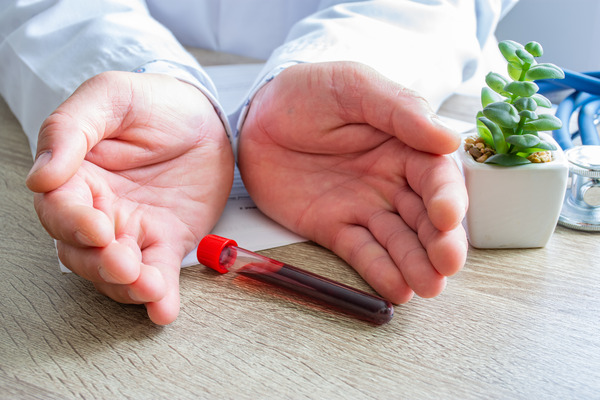5 Reasons To Consult a Hematologist

Hematology is a medical field dedicated to studying blood and blood disorders. Hematologists are trained and experienced healthcare professionals specializing in preventing, diagnosing, and treating diseases of the blood and blood components, including blood and bone marrow cells. Hematological tests can help diagnose various conditions and diseases, such as anemia, infection, hemophilia, blood-clotting disorders, and leukemia. Read on to learn why a patient may need to consult a hematologist.
Common reasons for consulting a hematologist
Patients are typically referred to a hematologist by their primary care physician or another medical specialist when certain symptoms or signs occur. Symptoms and signs typically signify a condition, disorder, or disease, but many are similar to other conditions. Here are five critical blood-related diseases and conditions that might require a consultation with a hematologist.
Leukemia and lymphoma
Leukemia is a type of cancer of the blood or bone marrow in which too many white cells are produced that do not function properly. Various types of leukemia can occur in both adults and children. Common symptoms of leukemia include swollen lymph nodes, sudden weight loss, easy bruising, fatigue, discomfort in the spleen (underneath the left lower ribs), visual problems, and ear ringing. Hematologists use a complete blood count (CBC) to test for and reveal leukemia cells' presence. Another indication that tells a hematologist if you might have leukemia is abnormally augmented levels of white blood cells or abnormally lower levels of red blood cells. Consulting a hematologist as soon as any of these symptoms occur can help diagnose leukemia in its early stages.
Lymphoma is another type of cancer that affects the white blood cells, but it starts in the lymphocytes, which are cells primarily devoted to fighting infection. It is a good idea to consult a hematologist for patients experiencing symptoms like shortness of breath, fatigue, coughing, and swollen lymph nodes. A lymphatic malignancy is used to diagnose using blood tests, bone marrow biopsies, and imaging tests (such as CT or PET scans). The imaging tests are especially effective in determining whether the cancer cells have spread beyond the lymph nodes to organs such as the lungs and spleen.
Anemia
Anemia is a condition in which there is a lack of healthy blood cells available to carry sufficient oxygen through the body. People with anemia often suffer from extreme fatigue and weakness. To diagnose anemia, hematologists use CBC tests to check hemoglobin levels (a protein that carries oxygen) and hematocrit (a measure of red blood cells). The CBC assesses the number of red blood cells, white blood cells, and platelets in the blood. If the CBC tests indicate a patient has anemia, the hematologist will order additional blood tests to analyze the condition's severity and the ideal treatment plan. These additional tests may include the following:
- Reticulocyte count: measures the number of reticulocytes (premature red blood cells) in the blood
- Peripheral smear: the doctor examines a sample of blood under a microscope. In a patient who has iron-deficiency anemia, their red blood cells will look smaller and paler than normal.
- Serum iron: measures the amount of iron in the blood. It is important to note that iron levels might be normal, even if the total amount of iron in the body is too low.
Sickle-cell disease
Sickle cell disease is an inherited blood disorder in which red blood cells produce an abnormal amount of hemoglobin, known as hemoglobin S (HbS). Unlike healthy red blood cells, sickle cells take the shape of a crescent or sickle shape, hence the name. While healthy red blood cells travel through blood vessels easily, sickle cells clump together and become lodged in the vessels, causing immense pain and discomfort. Hematologists use blood tests to check for a defective form of hemoglobin that shows sickle cell anemia.
Deep vein thrombosis
Deep vein thrombosis (DVT) occurs when a blood clot, or thrombus, forms in one or more deep veins, most commonly in the legs. People with DVT may experience leg pain and swelling or have no symptoms. However, DVT can be diagnosed and treated. Hematologists use a D-dimer blood test to detect these clots. D dimer is a type of protein produced by blood clots, and almost all people with severe DVT have increased blood levels of D dimer. Therefore, if the D-dimer blood test returns normal, it can help rule out DVT.
Hemophilia
Hemophilia is typically caused by a platelet deficiency that either slows or stops the blood from clotting. Common symptoms of hemophilia include bleeding from the gums, nosebleeds that seem to last a long time, joint swelling, and any prolonged bleeding from small cuts or injuries. A hematologist can diagnose hemophilia and suggest how to treat it.
Consult with us
If you are experiencing abnormal, recurring, or persistent symptoms, do not hesitate to schedule a consultation with a hematologist as soon as possible. Most conditions are best treated when detected early. Hematologists are trained and experienced in treating these blood conditions. Call our office today to learn more or schedule a consultation wherein we can order tests and get you started on treatment.
To learn more about our services, visit https://lindenbergcancer.com or call our Marlton office at {{PHONE}} to schedule an appointment.
Check out what others are saying about our services on Yelp: Hematologist in Marlton, NJ.
Recent Posts
Chemotherapy is an effective cancer treatment but one that is taxing on the body. Therefore, searching for "chemotherapy near me" should help you find a conveniently located facility to make receiving this treatment a little easier. Lindenberg Cancer & Hematology Center is located in the Marlton area. Our team will strive to help you through…
Our cancer center aims to alleviate the stress and burden often associated with cancer care. Unlike traditional oncology offices, we offer comprehensive care under one roof. This means you and your loved ones can access all your care needs without the added stress of moving around the city or state to consult multiple professionals. We…
Acute lymphocytic leukemia treatment comprises various methods, ranging in invasiveness. We determine the most effective method for you by assessing several factors, such as your age, cancer subtype, its stage, and what your body is able to handle. Take a look at the various treatment options our oncologist may employ to help get you into…
Chemotherapy, commonly known as "chemo," is a lung cancer treatment that uses anti-cancer drugs to kill cancer cells in the lungs and other parts of the body. It can shrink or stabilize the tumor, target leftover cancer cells after surgery, or alleviate symptoms. A chemotherapy plan is personalized to each patient's unique needs and circumstances,…


